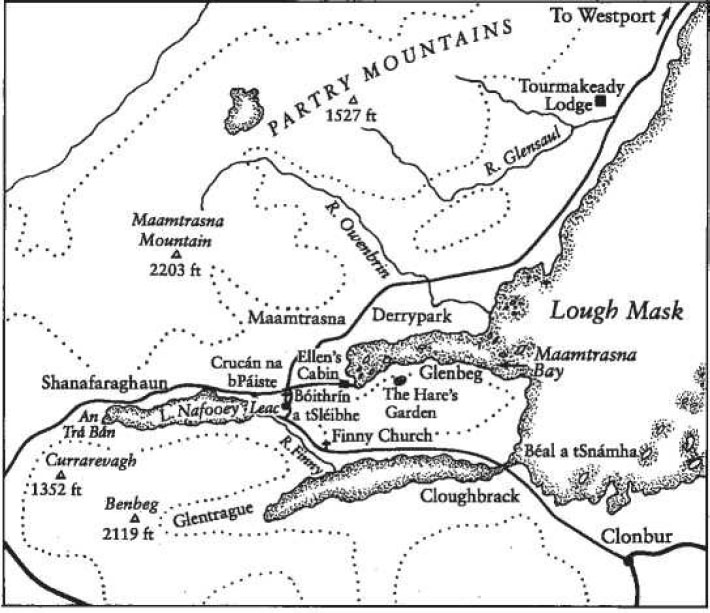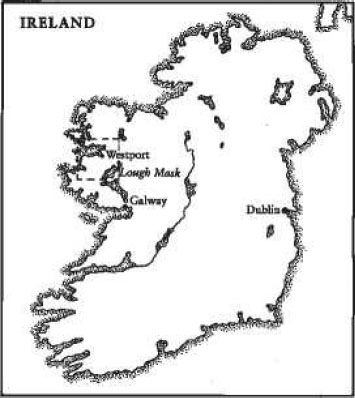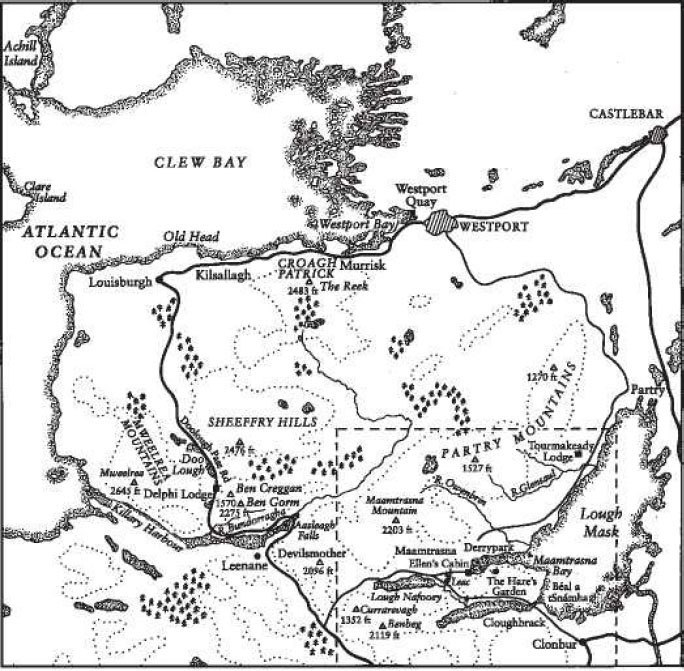
Полная версия:
The Whitest Flower

Brendan Graham
THE WHITEST FLOWER


Copyright
HarperCollinsPublishers
The News Building
1 London Bridge Street
London SE1 9GF
First published in Great Britain by
HarperCollinsPublishers 1998
This edition 2016
Copyright © Brendan Graham 1998
Lyrics by Brendan Graham
© Brendan Graham © peermusic UK, Ltd
Reproduced by permission
Brendan Graham asserts the moral right to be identified as the author of this work
A catalogue copy of this book is available from the British Library.
All rights reserved under International and Pan-American Copyright Conventions. By payment of the required fees, you have been granted the non-exclusive, non-transferable right to access and read the text of this e-book on screen. No part of this text may be reproduced, transmitted, down-loaded, decompiled, reverse engineered, or stored in or introduced into any information storage and retrieval system, in any form or by any means, whether electronic or mechanical, now known or hereinafter invented, without the express written permission of HarperCollins.
Ebook Edition © ISBN: 9780008148133
Version: 2016-01-04
Ellen’s Country

........... Areas showing ground above 360 ft
An Trá Ban lit. The White Strand, known locally as The Silver Strand Béal a tSnámha The mouth of the swimming place – now called the Ferry Bridge Bóithrín a tSléibhe The little road over the mountain Crucán na bPáiste Burial place of the children Leac Ellen’s ‘rock’Note: Maamtrasna in 1845 was in County Galway. The County boundaries were redrawn in 1896. Maamtrasna now resides in County Mayo.
Ellen’s Journey.


CONTENTS
Cover
Title Page
Copyright
Maps
An introduction to the 2016 edition
Book One: IRELAND
Chapter 1
Chapter 2
Chapter 3
Chapter 4
Chapter 5
Chapter 6
Chapter 7
Chapter 8
Chapter 9
Chapter 10
Chapter 11
Chapter 12
Chapter 13
Chapter 14
Chapter 15
Chapter 16
Chapter 17
Chapter 18
Chapter 19
Chapter 20
Chapter 21
Chapter 22
Chapter 23
Chapter 24
Chapter 25
Chapter 26
Book Two: AUSTRALIA
Chapter 27
Chapter 28
Chapter 29
Chapter 30
Chapter 31
Chapter 32
Chapter 33
Chapter 34
Chapter 35
Chapter 36
Chapter 37
Chapter 38
Chapter 39
Chapter 40
Book Three: GROSSE ILE
Chapter 41
Chapter 42
Chapter 43
Chapter 44
Chapter 45
Chapter 46
Book Four: BOSTON
Chapter 47
Chapter 48
Chapter 49
Chapter 50
Book Five: IRELAND
Chapter 51
Chapter 52
Chapter 53
Chapter 54
Chapter 55
Chapter 56
Chapter 57
Chapter 58
Chapter 59
Chapter 60
Chapter 61
Glossary
Quotations
Author’s Note
Bibliography
Acknowledgements
About the Author
About the Publisher
An introduction to the 2016 edition
When, almost twenty years ago, I walked into the boardroom of HarperCollins Publishers and told a roomful of executives the outline of what was to become this story, little did I realise the journey that particular morning would take me on.
Three years previously in the summer of ’93, I had been made redundant. A manager in a clothing manufacturing company, at 48-years-old I wasn’t re-employable in what was then a shrinking industry in Ireland. Life as I had known it had stopped and I thought the world would cave in, but it didn’t. By default I became a full-time songwriter − what was once my hobby would now, I hoped, become my bread ’n’ butter!
My ‘office’ became the poet, Patrick (Paddy) Kavanagh’s bench along the banks of Dublin’s Grand Canal, with the statue of the poet sitting to one side, offering room for any wandering soul needing respite from a weary world. Whether it was a statement of intent or whether I was hoping for Paddy’s inspiration and blessing, I am still unsure.
The following year a bittersweet song about the changing nature of life and love became the unlikely winner of the Eurovision Song Contest. With Rock ’n’ Roll Kids, I began to earn a living again. Two years later, in 1996 another quite different song, The Voice, repeated the winning experience. A song of the elements … of the connectedness of all things, past, present and future, it was leading me in a particular direction − history.
With time on my hands and lots of it, I began writing not one-off songs, but a series of connected songs set in the time of An Gorta Mór, Ireland’s Great Famine of the mid 1800’s. Why, I don’t know. I guess some things are preserved in a kind of national consciousness – even though at that time there was never much written in school text-books about the Great Famine. An even stranger thing was happening in these songs − a female character began to emerge, one who was the connecting force between them. She was edging me towards what was then the somewhat out-of-date notion of the ‘concept album’.
At a meeting in London in 1996, with music publishers, Warner Chappell, they seemed fascinated by both the story and in Ireland’s Great Famine, of which they knew little more than I did, though I had already begun my research. Back in Dublin the following morning, the phone rang − it was Stuart Newton the A&R man at Warner Chappell.
‘Could you be back in London for a 9.00am meeting on Friday at HarperCollins? Oh, and could you send over that story you told us about the woman and the potato famine?’
With nothing to send to anyone, I made some ungracious songwriter remark about publishers in general and said, ‘I’ll bring it with me!’
For the next three days and nights, I scarcely darkened the bedroom door. Somehow I scratched out fifteen pages of a stream-of-consciousness story, which had no title but did have a beginning, a middle and an end. Most of all, it had Ellen Rua O’Malley, my mysterious ‘song-woman’, who now had a name.
Arriving at the imposing headquarters of HarperCollins on Friday, I wondered what in God’s name I was doing there? Still only a fledgling songwriter trying to scrape out a living, here I was going in with a cobbled together story to read to these moguls of the publishing world. The foyer was even less becalming than the size of the building. There were books everywhere, No.1 bestsellers, famous authors; names I admired − books, books and more books. The boardroom didn’t help much either. Around a massive ‘table of doom’ sat seven people with seven sets of eyes all directed towards me.
And so I began to tell them the story of Ellen, and one of the many strange occurrences that have been with me throughout this journey happened. A peaceful calm descended, all anxiety and nervousness held at bay. It was like I was watching a slow-motion scene from a movie − one with me in it.
Ellen’s story had moved the people in that room and I was offered a book deal on the spot. In that moment I had gone from manufacturing to full-time songwriter and now a novelist, and I had learned to be grateful for what is sometimes taken away, as much as for what is sometimes given.
The writing of The Whitest Flower took two years and brought me from the mountains of Mayo to the Ngarrindjeri people of South Australia’s Coorong, to the ‘Irish Cemetery’ at Canada’s quarantine island of Grosse Ile and then to Boston. People everywhere were extraordinarily generous in their assistance and in sharing their history and I have thanked them in detail in the previous 1990 editions. However, there are a few people requiring special thanks. The late George Trevorrow, wise man and elder of the Ngarrindjeri people, unasked, gifted me with a dictionary of his people’s language and then gave me his people’s blessing. In Quebec, the late Marianna O’ Gallagher, who was involved in the creation of Grosse Ile as a National Historic Site, painstakingly guided me through the Irish story in Canada and corrected my errors of fact in Ellen’s story. In Boston, Eileen Moore Quinn, now professor of Anthropology at the College of Charleston, opened up the whole vista of women during the famine times and similarly read my manuscript, while Vincent Comerford, now retired Professor of Irish History at the National University of Ireland, Maynooth also kindly proof-read my manuscript for historical accuracy.
My daughter, Niamh not only put all of my original handwritten text onto a word processor but all the re-drafts too! This was between organising trips, meetings, and generally co-ordinating all my efforts over the two years the novel took to write. Without her work, this book would never have come together.
My editor at HarperCollins was the wonderful and legendary, Patricia Parkin, now sadly deceased and to whom I dedicate this new edition. Her obituary in the Guardian referred to her as ‘an endangered species’ and indeed she was of the ‘old school’ of publishing. Patricia came to Ireland, visiting all the places in ‘Ellen’s country’ about which I was writing. She had patience beyond the human and needed it with a first time novelist floundering under a 500-page novel. Only once did she snap. On the third and final book in the series, I had real difficulty getting off the blocks − not even a title for a long period. When I did get my title, The Brightest Day, the Darkest Night, I shot it over to Patricia in an email, hoping to stave off a publisher’s ire. I received back one of her succinct one-liners, ‘we all love the title − now where’s the book?’
But there was as always a ‘good’ reason.
During the publication of The Element of Fire, the second of the trilogy, I received a phone call. Norwegian composer, Rolf Lovland, one half of the successful group, Secret Garden, was working on the group’s second album. He had composed an instrumental melody called Silent Story for inclusion on this album. However, it seemed that this particular melody was not going to make the final cut, so Rolf decided to look for a lyric to his melody. That Christmas (2000), Irish violinist, Fionnuala Sherry, the other half of Secret Garden, had given him a present − The Whitest Flower. As the composer later described it, ‘the depth of that story moved me so much, I was so fascinated by it … I thought that if anybody could hear the story I was trying to tell in the melody … it was Brendan’.
I had temporarily put aside writing songs to concentrate on my books when I got “the phone call”. It was one of those split second decisions − they were in Dublin. I went to hear Rolf’s Silent Story melody and it immediately captured my imagination.
I came up with the title and wrote the chorus and bones of the song that very same day, then phoned them to come over later that night and in my cramped little garden study, I ‘sang’ for them the very first performance of You Raise Me Up. Did any of us that night have any inkling of the journey that song would take; from Super Bowl to Olympic Games, from Nobel Peace Prize to 9/11 Commemorations at Ground Zero and everywhere in between, crossing boundaries of culture, creed and country?
And so, in the whirlwind of that song, books suffered and I let down many people by long-missed deadlines − my steadfast publishers and my loyal readers.
Somehow Ellen Rua sustained on her own − so much so that, to my great surprise, HarperCollins decided to re-issue her story, seventeen years onwards. It is yet another twist to the story and in editor Kate Bradley, Ellen has found a new and enthusiastic champion, while Anne O’Brien, who worked on the original edition of The Whitest Flower, thankfully agreed to further tighten it up.
Without my agent Marianne Gunn O’Connor − who always believes − none of this would have come to pass and I express my deep gratitude to her for her calmness and stoic support.
My wife and family have previously lived through the ‘Ellen years’. Without their patience, understanding, fortitude and forbearance none of this journey would have happened … and be continuing.
Buíochas óm’ chroí
Co. Mayo,
November 2015.
The story of Ellen Rua O’Malley is just that − a story, but what she and her family experienced is largely based on actual recorded events of what happened to the poor in Ireland during the Famine years. I have tried as accurately as I could, to portray the Ireland of the times in which Ellen lived − the places, the political, religious, social and cultural background. Similarly for Australia, Grosse Île and Boston.
For omissions, mistakes of fact, and novelist’s licence, I am totally responsible. This should not in any way reflect on the very many diligent people who helped me with research material and whose work and suggestions were invaluable in creating the historical backdrop to The Whitest Flower. To them all I am deeply grateful.
In memoriam – John McDougall, HarperCollinsPublishers, June 1998
This edition – In memoriam Patricia Parkin. HarperCollinsPublishers, March 2009
DO
MHÁIRE, DONNA, GRÁINNE,
NIAMH, DEIRDRE agus ALANA
Book One
IRELAND

1
Ellen Rua O’Malley woke and immediately made the sign of the cross on herself. At the ‘Amen’ she pressed the thumb and forefinger of her right hand to her lips, then gently laid the hand in turn on the heads of her husband and three children. Unaware of her blessing, they continued to sleep – Michael, her husband, nearest the wall as was the custom; the children on the other side of the still-warm space she had occupied.
Her benedictions complete, Ellen moved quietly to the door of the small cabin and stepped out into the dawn light of the Maamtrasna Valley.
Roberteen Bawn, from his vantage point at the window of his parents’ cabin, watched Ellen appear. His mouth slowly widened in anticipation. This was the fifth morning in a row that she was up and about while all others in the mountainside village slept. All, that is, except for Roberteen.
From that first time he saw the red-haired woman slip away to the lake five days ago, he’d known instinctively that she would repeat the ritual – rising each day with the sun as it appeared over the top of the mountain, brightening the dark waters of Lough Mask – and he would be ready, in his position by the window.
Roberteen pressed closer to the cold stone of the window ledge, trying to keep his breathing under control. If his father – or, worse still, his mother – woke and caught him spying on the wife of Michael O’Malley, he’d be dragged by the ear-lug down the mountain to the priest in Finny. A chilling image of Father O’Brien denouncing him from the pulpit entered the boy’s mind. Still he could not drag himself away from the window and the sight of the red-haired woman.
He followed her every move as she straightened to full height on leaving her cabin. Good – he tensed with delight – she wasn’t wearing the shawl. When her bare arms reached out to the sun it was as though the sun came to her, its light playing on the dark red hair that earned her the name Ellen Rua – red-haired Ellen. As she reached back with both hands to loose the tangled mass of hair, she turned her face in Roberteen’s direction. He drew back sharply, and waited a few moments before inching his face to the window again. She was standing with her back to him, looking down the valley towards Lough Mask. He could see the white nape of her neck where she had pulled the hair forward over her shoulders. She mustn’t have spotted me, he thought, rubbing his hands together.
At nineteen, Roberteen Bawn was ripe for marrying. His mother, Biddy, was forever telling him so. ‘Oh! Roberteen,’ she would say, ‘if only you could get a girl like Michael O’Malley’s wife – she’d knock some spark o’ sense into you.’ If only she knew!
Ah, with such a fine woman for a wife wouldn’t he be the talk of the valley – and of Finny and Tourmakeady too – just like Michael O’Malley was.
Intent now on what the red-haired woman was doing, Roberteen’s thoughts broke off from his mother’s intentions for him. Ellen had not moved for some time now. She stood very still, gazing at the lake or perhaps at Tourmakeady far down along its western shore. Planning and scheming, most like; the red-haired women were notorious for it, and this one’s head was full of ideas she’d got from her father, the Máistir.
He turned again to check on his parents. Still sleeping. Good, he was all right. When he turned to look at Ellen again, she had moved slightly. Suddenly it struck him. Sure, he should have known right away by the way she was standing so still, her hands joined. She was praying, that’s what she was at!
This deflected him momentarily. It wasn’t a right thing to be looking at her that way, and she praying. But, then again, maybe she wasn’t praying, just looking at the lake and dreaming … dreaming of songs and poems and stories and all them things the Máistir had put into her head as a child.
His conscience thus salved, Roberteen remained where he was, watching.
Ellen felt the sun move down her body, searching her out, nourishing her with the warmth of its rays. It was difficult to pray this morning. It was always difficult on the mornings after the nights when she had turned to Michael, and, from deep in her throat, drawn out the soft, low words he loved to hear. It had been thus these past five mornings – ever since 15 August, Our Lady’s Day. It was almost as if the two strands of her love – her deep spiritual love of God and her deep physical love for Michael – should be kept apart, should not touch each other.
She put all other thoughts from her mind, giving herself up instead to this wild place on the mountain. Before her the Mask spread out, its myriad islands sparkling like emeralds in the August morn. Though her village lay on an arm of the Mask which extended just inside Galway’s northern border, Ellen nevertheless regarded herself as a Mayo woman – both her parents being of that county. The other arm of the Mask embraced the far side of the mountain, reaching back towards America Beag. Nothing there now but a few fields and empty cabins. The first one to go left back after the famine times of the 1820s, the Máistir had told her. Then the dollars from America came, and the next one left. One by one they followed like links in a chain, until they were all beyond in Boston or New York. So they called the home-place America Beag – ‘Little America’. Strange, she thought, only the odd one had left from anywhere else about the place.
From across the lake she could hear the dogs of Derrypark yelping for their morning scraps, their hunger echoing over the still waters of the Mask. Her eye wandered on along the far shore towards Tourmakeady, where Pakenham the landlord lived.
She had seen him once at the fair in Leenane. He had smiled and nodded at her, struck by the way she stood out from the crowd. She, without acknowledging him, had moved on, but not before she had heard him bellow at one of his lackeys, ‘That girl, who is she? No, not her, you fool – that one over there with the red hair.’ She was gone from earshot before the lackey had time to reply.
Not wishing to darken this fine morning with thoughts of Sir Richard Pakenham, or any other landlord, she redirected her attention to the valley. The garden of paradise could not have been more beautiful than her valley of the lake, framed by the towering Partry Mountains. Her eyes took it all in, just as they had taken in the sudden movement in Roberteen’s cabin. The thought of young Roberteen brought a smile to her blue-green eyes. The next time she came across him, she’d look him straight in the eye – let him know that she knew, the little whelp! And he not even the height of her shoulder. Some hard work drawing turf up the mountain would temper the rising sap in him. If Michael suspected Roberteen of spying on her, he would give the lad a thrashing and a half. But she wasn’t about to tell Michael. She would deal with it in her own way, and in her own time.
She let her eyes rest upon the patch of land between the staggered row of cabins and the lake shore. She always saved this scene, the most important of all, until last. There, just below the bóithrín, were the lazy beds. Underneath these long raised mounds of earth grew the villagers’ sole means of existence: the lumper potato. The growth was luxuriant – the best she’d seen in years. Down below the green stalks and the little white flowers bobbing this way and that, the tubers themselves were ripening and fattening, getting ready to be lifted.
This would be a good year. They would work hard and, maybe, with God’s help, they would be able to put a little by after the rent had been paid.



